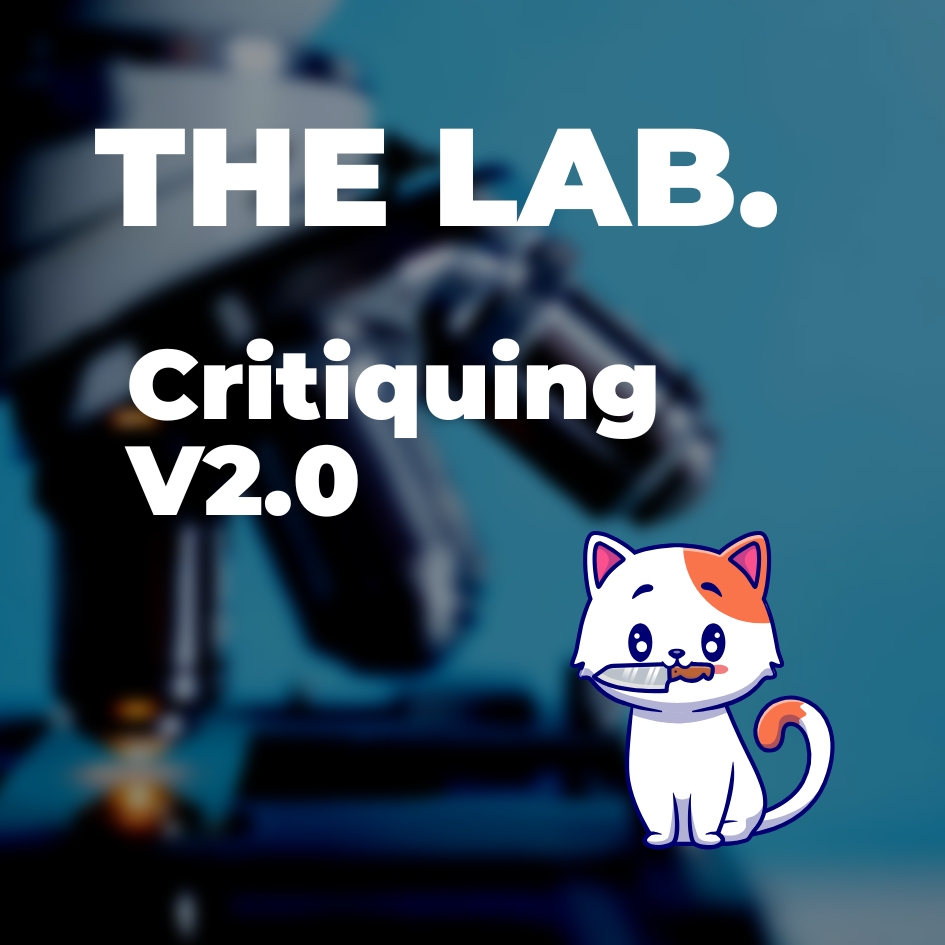this, to me, is an interesting translation issue, one of those things I dealt with all the time in journalism and inevitably fell back onto the ol' AP style book for official rulings. Found these around the house recently, as you do, piles of old socialist tomes. But note the name. In English, we'd assume it's wrong. Of course, correctly, it's Cyrillic, and I've most often often dealt with the issue from Arabic. The question: when is a translation actually correct? The answer is kind of always, if we decide it is, and never, isn't it? anyway, thoughts?
Click for more details
Navigation
Install the app
How to install the app on iOS
Follow along with the video below to see how to install our site as a web app on your home screen.
Note: This feature may not be available in some browsers.
More options
Style variation
-
Café Life is the Colony's main hangout, watering hole and meeting point.
This is a place where you'll meet and make writing friends, and indulge in stratospherically-elevated wit or barometrically low humour.
Some Colonists pop in religiously every day before or after work. Others we see here less regularly, but all are equally welcome. Two important grounds rules…
- Don't give offence
- Don't take offence
We now allow political discussion, but strongly suggest it takes place in the Steam Room, which is a private sub-forum within Café Life. It’s only accessible to Full Members.
You can dismiss this notice by clicking the "x" box
You are using an out of date browser. It may not display this or other websites correctly.
You should upgrade or use an alternative browser.
You should upgrade or use an alternative browser.
When a V is a W is a squiggly line and all are correct
- Thread starter MattScho
- Start date
Invest in You. Get Full Membership now.
Peyton Stafford
Full Member
Interesting. Speaking from my background in history of religions, people today struggle to understanding historical prophets. The best approach I have found is to look at the translations as interpretations rather than taking them for literal. I’m not sure how to put this interpreting a text from one language and culture to another is not just a matter of skillfully translating the words. It’s a matter of translating the meaning, within one culture into a meaning that people in another culture can understand.
Last edited:
Juerg says what in English we identify as a V- in Cyrillic looks like a B. So what you have is an interesting little window into time. German printer: Use the Vogel -F sound V? Use the W? Make the wrong choice and you end up on the wrong side of a Stasi bullet after a few hours of torture. Now Choose.this, to me, is an interesting translation issue, one of those things I dealt with all the time in journalism and inevitably fell back onto the ol' AP style book for official rulings. Found these around the house recently, as you do, piles of old socialist tomes. But note the name. In English, we'd assume it's wrong. Of course, correctly, it's Cyrillic, and I've most often often dealt with the issue from Arabic. The question: when is a translation actually correct? The answer is kind of always, if we decide it is, and never, isn't it? anyway, thoughts?
Just as an aside, Red poets’ society: the secret history of the Stasi’s book club for spies. When the land of Goethe meets Stalinism.
- Thread starter
- #5
Transliteration issues were always no win as far as direct translation.
Once, in 2003 in Baghdad, I came at a battle around a mosque from the south, the residents trying to protect the mosque and burying their children in shallow graves. Whatshiname from the NYT came from the north, and wrote about US troops fighting off Iraqi terrorists. Because Arabic to English is far from exact, as with Cyrillic to Latin characters, the name of the mosque was really different. We had no idea it was the same battle for a couple days. My translators, who were better, insisted they were correct. The NYT always wins in that fight, though
Once, in 2003 in Baghdad, I came at a battle around a mosque from the south, the residents trying to protect the mosque and burying their children in shallow graves. Whatshiname from the NYT came from the north, and wrote about US troops fighting off Iraqi terrorists. Because Arabic to English is far from exact, as with Cyrillic to Latin characters, the name of the mosque was really different. We had no idea it was the same battle for a couple days. My translators, who were better, insisted they were correct. The NYT always wins in that fight, though
Invest in You. Get Full Membership now.
Frustrating. The Grey Lady is paying the price for hubris these days.Transliteration issues were always no win as far as direct translation.
Once, in 2003 in Baghdad, I came at a battle around a mosque from the south, the residents trying to protect the mosque and burying their children in shallow graves. Whatshiname from the NYT came from the north, and wrote about US troops fighting off Iraqi terrorists. Because Arabic to English is far from exact, as with Cyrillic to Latin characters, the name of the mosque was really different. We had no idea it was the same battle for a couple days. My translators, who were better, insisted they were correct. The NYT always wins in that fight, though
Just finished Babel, with an interesting premise about translation and the cross pollination of language. . Too bad the author didnt really do anything with it but opted for the nuts and bolts ending instead of taking it further. Babel, or the Necessity of Violence - Wikipedia
Last edited:
E G Logan
Full Member
I took my latest AP Style Guide and Merriam Webster's Dictionary, the ones I'd been using for work, round to the book exchange booth outside the public library and placed them tenderly on a shelf, with a fine sense of finality.
I passed later in the week and was very surprised to see they had... gone. Given this is Italy and these are very technical US English language tools, it was something of a surprise.
I hope the new owner gets some fun out of them – I never did. I hated them both like poison.
I passed later in the week and was very surprised to see they had... gone. Given this is Italy and these are very technical US English language tools, it was something of a surprise.
I hope the new owner gets some fun out of them – I never did. I hated them both like poison.
- Thread starter
- #8
I would have picked it up. Couple countries away, though. I consult with a group who insists they use AP style, but I'm not sure they know what that really means. I threw my last one away in 2017 when i left DC.I took my latest AP Style Guide and Merriam Webster's Dictionary, the ones I'd been using for work, round to the book exchange booth outside the public library and placed them tenderly on a shelf, with a fine sense of finality.
I passed later in the week and was very surprised to see they had... gone. Given this is Italy and these are very technical US English language tools, it was something of a surprise.
I hope the new owner gets some fun out of them – I never did. I hated them both like poison.
E G Logan
Full Member
You really need the latest one. And the effing Merriam Webster. At least if you are working for publication, or just being strict about it, you do. Every year stuff changes – as I'm sure you know – and while it's often completely piffling, once in a while it's not.I would have picked it up. Couple countries away, though. I consult with a group who insists they use AP style, but I'm not sure they know what that really means. I threw my last one away in 2017 when i left DC.
I used to put mine through as an expense, which eased the pain a little. Not the frustration, though.
- Thread starter
- #10
My stuff these days is the opposite of published. Being a consultant is weirdYou really need the latest one. And the effing Merriam Webster. At least if you are working for publication, or just being strict about it, you do. Every year stuff changes – as I'm sure you know – and while it's often completely piffling, once in a while it's not.
I used to put mine through as an expense, which eased the pain a little. Not the frustration, though.
Invest in You. Get Full Membership now.
Peyton Stafford
Full Member
What about the Chicago Manuel of style and the Oxford English dictionary? Anyone have an opinion on them?
- Thread starter
- #12
Chicago Manel is academic, right? I was asked to use it on a project for Princeton, but that was a one off.
Peyton Stafford
Full Member
yes. academic. but that can be good.Chicago Manel is academic, right? I was asked to use it on a project for Princeton, but that was a one off.
E G Logan
Full Member
Anyone can use the Oxford English Dictionary for anything at all, so long as it's in British English. But it's not a style guide.What about the Chicago Manuel of style and the Oxford English dictionary? Anyone have an opinion on them?
The Chicago Manual of Style, from the University of Chicago, is a US English style guide. You will need it for academic editing when the person commissioning the work specifically wants/needs to use Chicago. It has very strict rules on things, for example, like Notes, Bibliographies and Citations (their capitals, not mine) for academic papers. My advice, as a past academic editor, would be not to try to use it unless you have a good reason to, like you are required to.
The thing about style guides is they are professional tools – and they are hard work. If you are asked to use a specific one, you can't pick and choose, either using another one instead, or using only bits and pieces from the suggested one; it's all or nothing.
If you want a style guide you can flick through, The Economist Style Guide is probably the most readable. From The Economist magazine, it is British English, though, with British spelling, punctuation, grammar, etc.
Further Articles from the Author Platform
Café Life Tag Cloud
2025
agent
author
authors
blog
book
books
cafe
calls for submissions
challenge
character
christmas
competition
conferences
contest
creative writing
creativity
editing
fantasy
feedback
fiction
inspiration
life
literature
litopia
motivation
music
new
new member
novel
philosophy
poetry
publisher
publishing
reading
review
romance
self-publishing
sentence
shakespeare
short story
stories
story
storytelling
technology
words
world
writer
writers
writing
Similar threads
Thought for the Day
There is a thin line that separates ...
- Replies
- 0
- Views
- 196
Latest Articles By Litopians
-
The Shadow Durian
As a lifelong foreigner, I’ve learnt that being open to new things smooths the path considerably. ...
-
Goodbye Eeyore, Hello Tigger
Granny was churchy. She grew up in an era that saw living by the Bible as an important British chara ...
-
21st Century Song of Summer
It’s sobering to think that while summer is celebrated in some parts of the world with mus ...
-
Falcon Theory
“So,” said Goethe to his friend Johann Peter Eckermann, “let us call it a Novelle, for what i ...
-
The Joy of Lit Mags
While my first novel is tentatively making its way towards agents who already have too much to read, ...
-
Advertising and Social Media
There has been much discussion in writing circles about how much a writer has to self-promote these ...
-
Future Abstract: Fights at Night
SATIRE ALERT: The following abstract is entirely fictional and does not represent actual events or s ...





